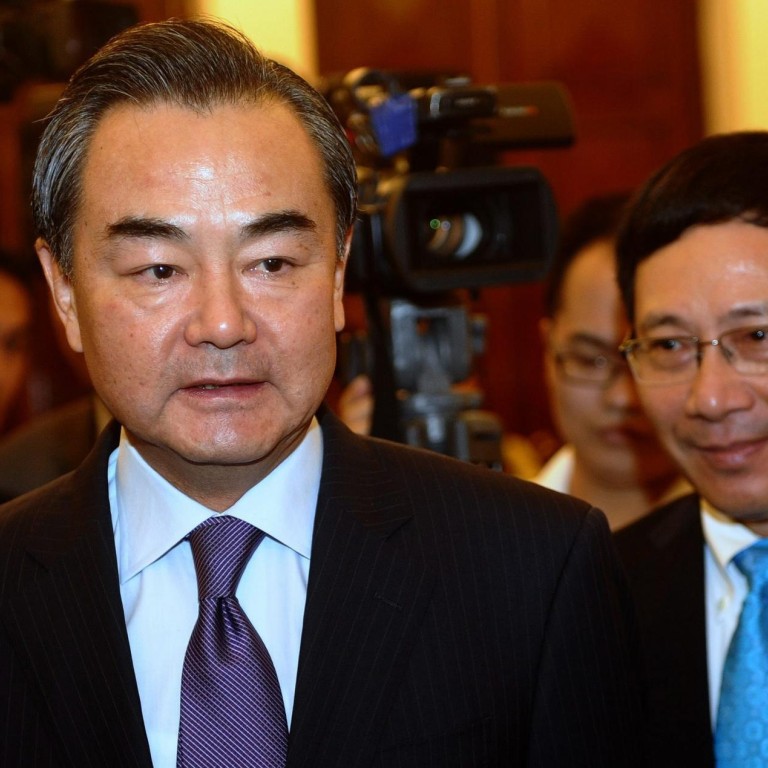
Philippines seeks 'tranquility' in relations with China
The Philippines moves to patch up differences with China, largely stemming from conflicting territorial claims in the South China Sea
With China's foreign minister wrapping up a two-day trip to Vietnam yesterday, the Philippines becomes the only claimant country in the South China Sea dispute that Wang Yi has not visited.

Del Rosario said he told Pham: "Yes. Please, I am waiting for a positive response to my invitation" for the Chinese foreign minister to visit Manila.
China's snub highlights the rift between the two previously close countries. Since taking office in March this year, Wang has visited seven of 10 Asean member states. Two of those he hasn't visited - Cambodia and Myanmar - have warm relations with China and receive generous Chinese aid and investments.
Del Rosario had extended the invitation to Wang shortly after they both had "a testy exchange", news reports said, during the June 30 Asean meeting in Brunei, which included China. Del Rosario reportedly expressed "serious concern" over China's military build-up in the South China Sea.
That, plus the Philippines' unprecedented action to formally file for arbitration before the International Tribunal for the Law of the Sea (ITLOS), has resulted in China's snub.
The Foreign Correspondents' Association of the Philippines found a more conciliatory Del Rosario during a meeting with him on Friday. He said: "I am looking for a modus vivendi with China. Some tranquility in terms of our relations."
When asked by the to comment on President Xi Jinping's recent statement that China was open to shelving disputes and carrying out joint development in areas "over which China has sovereign rights", Del Rosario did not bristle. Instead, he recounted his meeting with Xi when the latter was still vice-president.
He said Xi brought up the concept of joint development. "The response that I have to your question is the same response I had with [Xi] in my discussions," said Del Rosario. "I said that as long as joint development does not violate Philippine law we are okay with it."
He said he had then suggested to Xi: "Sir, why don't we pursue an agreement with your good country so that we can move forward with a major bilateral agenda and abstract contentious issues like the west Philippine Sea? And [Xi] seemed okay with that."
He noted that both countries had signed "close to a hundred agreements". One of them specified that contentious issues would be tackled separately from the bilateral agenda.
Del Rosario defended his move to seek arbitration before the ITLOS. He said it was "a mechanism in international law [which] the United Nations has declared is not an unfriendly act".
"In our heart we believe we did the right thing ... win or lose ... it will create maritime entitlement, verification. So everybody is clarified," he said, adding that more and more countries were sharing this viewpoint.
Del Rosario also praised what he called Brunei's outstanding manner of chairing the Asean meeting. He disclosed that on their very first meeting, Brunei immediately raised the South China Sea issue, saying: "We need to discuss it because it is a very important element in terms of peace and security."

